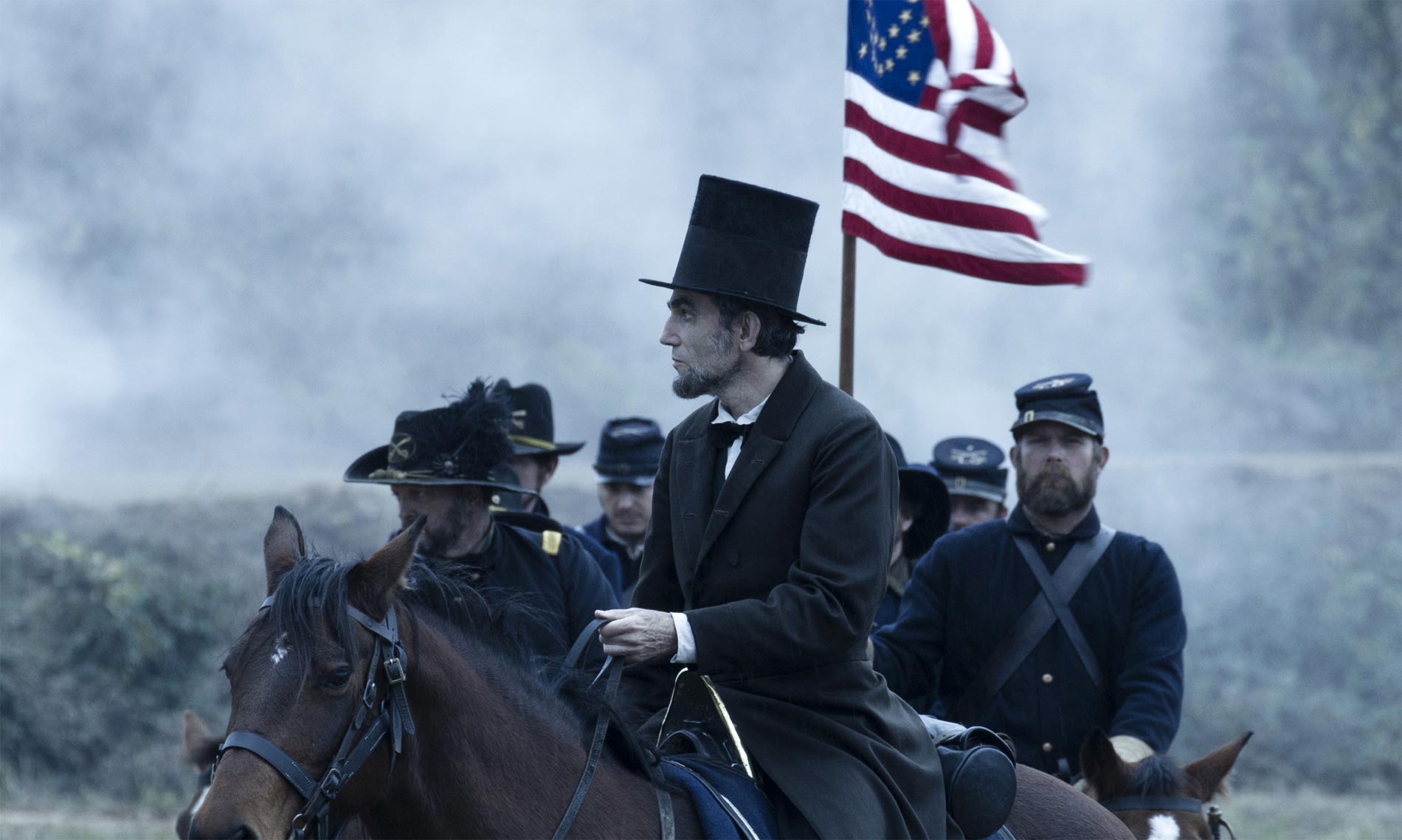The vote to finally abolish slavery in the U.S. was so very close—shockingly close, in fact. Two more votes could have continued to condemn an entire class of living, breathing human beings to the status of property. If the arc of the moral universe bends toward justice, Abraham Lincoln is certainly remembered for doing a disproportionate amount of bending.
Spielberg’s Lincoln, starring Daniel Day-Lewis in the titular role, portrays a man who is as close to the ideal of the moral politician as any in American history. Focusing on the narrow period of time that saw the passing of the 13th Amendment to abolish slavery and the end of the American Civil War, the film paints a portrait of a man who navigated the Scylla and Charybdis of ethical and political obligations like no other. Early whispers of the film as a strong Oscar contender are well-founded. Lincoln is a faithful and glowing eulogy to one of America’s greatest presidents, and more importantly, to the remarkable man who held the office.
The film opens with a scene of carnage and brutality. Spielberg, well-remembered for directing Saving Private Ryan, knows war. There is something to be said for the authenticity with which warfare is treated here. Poets romanticize; soldiers fight. They churn mud with blood, they unhesitatingly bootstomp the faces of opponents, they claw and scrape and kill to win one more second of life—and Spielberg shoots like a soldier, not a poet.
Though the war always looms in the background, it is not the focus of the film. Lincoln’s central and climactic battle is legislative, not military. While the 13th Amendment easily sails through the Republican-controlled Senate, its first appearance in the House of Representatives results in defeat. Further complicating Lincoln’s quest for a constitutional ban on slavery is the division within his own party. Not only is abolition opposed by most Democrats, but Radical Republicans, who favour greater egalitarianism for non-white inhabitants, view the amendment as a morally-deficient compromise.
Day-Lewis’ method acting is legendary—cast and crew reportedly referred to him as ‘Mr. President’ for the duration of filming—and the result is spectacular. His Lincoln is a radiant example of a man who successfully combines principle and pragmatism. Always affable, with plenty of humourous anecdotes to offer during tense situations, the uninitiated may be surprised by just how quirky the president can be. At the same time, Day-Lewis commands such gravitas that it’s impossible not to be awe-struck—whether during a thunderous confrontation with Mrs. Lincoln (Sally Fields) or a moment of tender embrace with his child.
Rivaling Day-Lewis’ performance is Tommy Lee Jones as Thaddeus Stevens, the most prominent Radical Republican in the House. Stevens’ infamously scathing sarcasm is delivered by Jones in delicious, triumphant, booming fashion. But his story is also sadder, and more profound. Lincoln’s victory necessitates Stevens’ compromise. Jones’ Stevens is imminently sympathetic, a man of deep moral sensibility who was ahead of his time.
Tony Kushner’s script, adapted from Pulitzer prize-winning historian Doris Kearns Goodwin’s biography Team of Rivals: The Political Genius of Abraham Lincoln, is infused with wit and tension. Kushner accomplishes the unenviable task of making passing legislation interesting. Biopic-status notwithstanding, Kushner also points to ways in which contemporary America continues to perpetuate racial stigmatization: one blatantly racist citizen employs rhetoric that is uncomfortably similar to current arguments against immigration.
Portraying such a seminal figure in American history may seem like a tough task. Get it wrong, and you’ll be eviscerated. Get it right, and people will still complain. Yet Spielberg and Day-Lewis’ vision is so accomplished, so assuredly well-crafted, that it will undoubtedly weather the test of time, just like the president—and man—that it celebrates.
Lincoln is currently playing at the Cineplex Forum (2313 Ste. Catherine West). Tickets are $13; $6.75 on Tuesdays.







